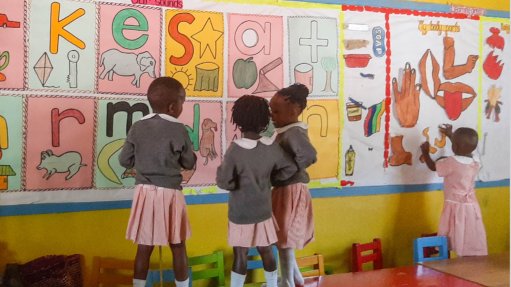
James Muhindo (not his real name) is a “boda boda” motorcycle driver in Tokora, Nakapiripirit. He would like to send his five-and-a-half-year-old son to pre-primary school but said he cannot afford the fees. “I don’t have money to take him to nursery,” he said. “There is a pre-primary school nearby but they [charge] 30,000 [Uganda Shillings, UGX; US$8] for nursery. It is a private school.... My son cannot read and write. He cannot speak English.… There are these people who are rich who are taking their children to school. For the poor, things remain like that.”
In Uganda, fewer than 1 in 10 pre-primary aged children (ages 3-5) are enrolled in a formal pre-primary school, and 60 percent attend no school at all. The government does not provide any public pre-primary education (often called “nursery”), so families seeking education for their young children must rely on private providers that can charge prohibitive fees. For example, in Kampala, these fees can reach UGX 1,750,000 (US$462) or more per child per term. For a full school year—three terms—fees for just one child at this rate represent more than two years’ wages for an average person in paid employment in Uganda and exceeds the annual tuition for many programs at Uganda’s leading university, Makerere University.
Parents interviewed for this report said they paid from UGX 5,000 ($1.35) per child per term in rural Nakapiripirit in the Karamoja subregion to UGX 800,000 ($215) per child per term in Kampala, the capital city. Some parents said that the high cost of pre-primary education in Uganda meant that their children missed out on pre-primary education all together or stopped attending when they became unable to continue paying fees.
Report by the Human Rights Watch